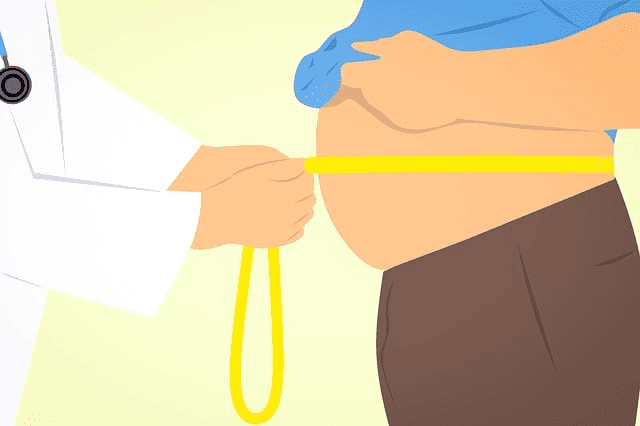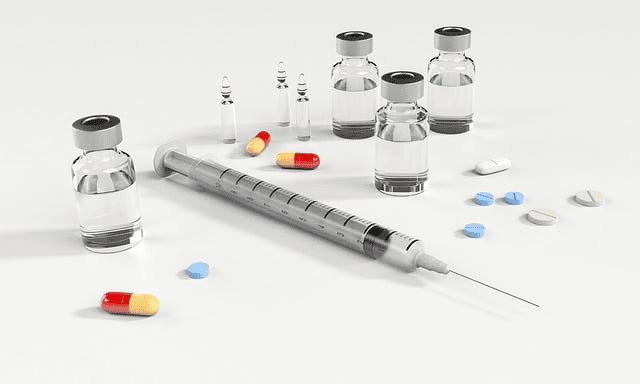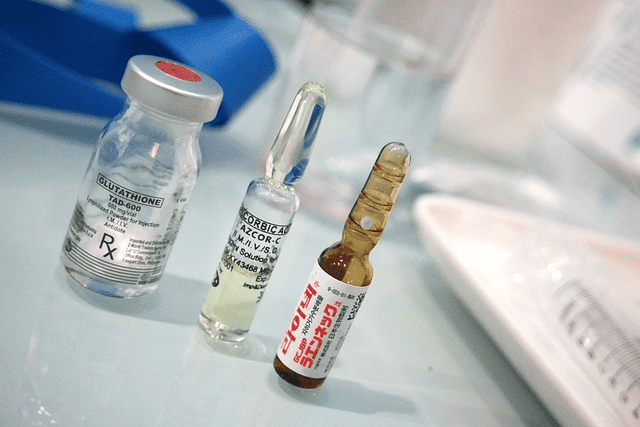Are you struggling with your weight loss journey and searching for an effective solution? Enter the world of peptides for weight loss, an innovative approach to target fat metabolism, increase muscle mass, and provide a myriad of additional health benefits.
This blog post will delve into the science behind these powerful amino acid chains, explore the top 5 weight loss peptides, and provide guidance on using them safely and effectively. Get ready to unlock the potential of peptides for a healthier, slimmer you!
Key Takeaways
-
Peptides are a natural compound which can aid weight loss through increasing fat metabolism and lean muscle mass.
-
Injectable forms of peptide offer superior bioavailability, but safety measures should be observed to reduce potential side effects.
-
Real-life success stories demonstrate the efficacy of peptides for weight loss and improved body composition.
Understanding Peptides and Their Role in Weight Loss

Peptides, short chains of amino acids, contribute to weight loss by enhancing fat metabolism, boosting lean muscle mass, and offering anti-aging benefits. These naturally occurring compounds can be found in various food items, such as meat, fish, beans, lentils, and oats.
Peptide therapy, popular for its capacity to boost muscular strength, energy levels, enhance physical activities, and speed up muscle recovery afterwards, has emerged as a favored weight loss solution.
The market offers a wide range other benefits of peptides in different forms, such as collagen peptide supplement powders for skin, hair, and gut health, or synthetic peptides that increase human growth hormone (HGH) levels, potentially leading to increased energy. Besides their direct impact on weight loss, peptides also contribute to overall well-being, making them a valuable addition to anyone’s weight loss journey.
The Science Behind Peptides
Peptides are the building blocks for proteins, consisting of two to 50 amino acids. Their smaller size and structure give them an edge over proteins in terms of absorption and utilization by the human body.
Growth hormone secretagogues are a class of peptides. They stimulate the body to release growth hormones, which has a range of beneficial effects such as improved muscle growth and decreased body fat. This process is known as growth hormone secretion.
Synthetic peptides, designed to emulate the function of natural peptides in the body, have been developed and used in various therapeutic applications. For instance, CJC 1295, a popular synthetic peptide, promotes slow-wave sleep, collagen, and elastin production, enhancing skin texture and appearance.
Peptides and Fat Metabolism
Peptides can significantly enhance fat metabolism by stimulating lipolysis and suppressing lipogenesis (the process in which the body produces fats from simpler substances like sugars) leading to weight loss.
Specific peptides, such as AOD 9604 and Semaglutide, have been shown to increase fat oxidation, lipolysis, lean muscle mass, as well as improve sleep, energy, sexual function, and endurance.
These peptides may also influence the metabolism of fatty acids, contributing to their overall effectiveness in promoting an increase lean muscle mass and body mass. Adhering to the recommended dosage and cycles for each peptide is key to attaining optimal results.
Top 5 Weight Loss Peptides

Throughout this post, we have touched upon the various peptide benefits for weight loss. Next, we examine the top 5 weight-loss peptides garnering attention in the fitness realm:
-
Semaglutide
-
AOD 9604
-
CJC 1295 + Ipamorelin
-
Tesamorelin
-
5-Amino-1MQ
Each of these peptides has a unique mechanism of action and a set of benefits that can help you lose weight and reach your weight loss goals more effectively.
Semaglutide
Semaglutide is a glucagon-like peptide-1 (GLP-1) receptor agonist, approved by the FDA for weight loss and blood sugar control. It functions by stimulating the release of GLP-1, a hormone that aids in regulating appetite and decreasing food intake. As a result, Semaglutide has been shown to cause a significant reduction in body weight, with participants experiencing a weight loss of 6.2% to 12.4% of their initial body weight.
A safe administration of Semaglutide involves a recommended dosage of 0.25-2.4 mg for 6-8 weeks successively. This injectable peptide is suitable for individuals with chronic weight management issues, such as those with type 2 diabetes.
AOD 9604
AOD 9604 is an anti-obesity peptide that offers the following benefits:
-
Promotes fat breakdown without causing blood sugar dysregulation
-
Stimulates the release of growth hormone, thereby promoting fat metabolism and reducing body fat
-
Enhances fat metabolism
-
Promotes weight loss
-
Increases energy levels
-
Provides anti-aging effects
The potential side effects and risks of AOD 9604 include nausea, headaches, and dizziness. Before utilizing AOD 9604, it is imperative to seek a healthcare provider’s advice to confirm its safety for individual use.
CJC 1295 + Ipamorelin
CJC 1295 and Ipamorelin can offer powerful advantages for weight loss. Both peptides function by inducing the secretion of growth hormone, which facilitates the elevation of fat metabolism and diminution of body fat. CJC 1295 + Ipamorelin can lead to increased fat metabolism, reduced appetite, and improved glucose control.
The combination of CJC 1295 and other peptides like Ipamorelin has been found to be particularly effective in stimulating growth hormone release and increasing fat metabolism for successful weight loss, while preventing unwanted weight gain.
Tesamorelin
Tesamorelin is a growth hormone-releasing hormone analog that has been shown to:
-
Reduce visceral fat
-
Increase fat metabolism
-
Induce the secretion of growth hormone
-
Facilitate the elevation of fat metabolism and diminution of body fat
-
Amplify natural production of human growth hormone (HGH)
-
Augment Insulin Growth Factor-1 (IGF-1) levels
-
Reduce abdominal fat accumulation
-
Potentially provide anti-aging benefits
One notable concern with Tesamorelin is its potential to cause insulin resistance when used for extended periods. However, it has been found to have a positive impact on insulin resistance and is generally considered safe when used responsibly.
5-Amino-1MQ
5-Amino-1MQ is a derivative of methyl quinolone, widely regarded as one of the most effective anti-obesity drugs due to its unique mechanism of action. It inhibits NNMT, an enzyme involved in the generation of adipocytes, and promotes cellular glucose metabolism, resulting in effective weight loss.
The recommended dosage for 5-Amino-1MQ is one capsule per day for a period of 2 to 3 months. Users have reported an increase in fat metabolism, suppression of appetite, and regulation of glucose levels, making it a promising solution for weight loss.
How to Use Peptides for Weight Loss

For weight loss, peptides can be administered in either injectable or oral forms, although the injectable forms are typically recommended for best results. Supplementation, oral gels, topical treatments, and transdermal or subcutaneous injections are all viable options for peptide therapy.
Nevertheless, adherence to correct safety measures and dosage guidelines when using peptides for weight loss is crucial to mitigate potential side effects and risks.
Injectable vs. Oral Forms
Injectable forms of peptides, directly absorbed into the bloodstream, provide superior bioavailability and efficacy. They also have a quicker onset of action and can be utilized to target particular areas of the body. However, injectable forms may require more frequent administration and can be associated with discomfort at the injection site.
Conversely, oral forms of peptides, which can be taken at any time sans injections, offer convenience and ease of use. Additionally, they tend to have fewer side effects and are generally considered to be safer than injectable forms. The choice between injectable and oral forms of peptides depends on the individual’s preferences, needs, and lifestyle.
Safety and Precautions

Following safety guidelines and precautions is important to limit potential side effects and risks associated with the use of peptides. These include:
-
Adhering to package instructions
-
Abiding by the recommended dosage
-
Seeking advice from a healthcare professional
-
Being aware of potential side effects
-
Selecting reliable sources for peptide products
Peptides are generally considered safe when used appropriately, with potential minor side effects including headache, nausea, and abdominal discomfort. Nonetheless, it’s critical to exercise caution with peptide usage and seek a medical professional’s advice before initiating any peptide therapy regimens for weight loss.
Legal Status and FDA Approval of Peptides

The legal status of peptides varies, depending on their intended use. It is prohibited to offer peptide hormones in dietary supplements, but when prescribed by a qualified healthcare provider for a valid medical purpose, utilizing FDA-approved peptides is generally deemed legal.
Some peptides, such as Semaglutide and AOD 9605, have been approved by the FDA for human consumption under prescription.
Research Purposes vs. Human Consumption
Peptides are legal for research purposes, but their use for human consumption may be limited or prohibited by the FDA. Peptides purchased for research purposes are solely intended for laboratory use and are not suitable for human consumption. Peptides to be consumed by humans must first be approved by the FDA prior to use.
Being aware of the legal status of peptides and their FDA approval is fundamental for legal compliance and safe usage for human consumption. Always consult a healthcare professional before starting any peptide therapy to confirm its legality and safety.
Potential Side Effects and Risks

Despite peptides generally being regarded as safe when responsibly used, they may be associated with potential side effects and risks. These include:
-
Trouble sleeping
-
High blood pressure
-
Dizziness
-
Nausea
-
Vomiting
-
Liver or kidney damage
-
Hormonal imbalances
-
Mood swings
-
Fatigue
-
Changes in bowel habits
However, most of these side effects are rare and can be minimized by following safety precautions and dosage guidelines.
Monitoring your body’s response to peptide therapy and seeking a healthcare professional’s advice in case of any adverse effects is important. By using peptides cautiously and adhering to medical advice, you can enjoy the many benefits of peptide therapy for weight loss while minimizing potential risks.
Real-Life Success Stories and Testimonials
Real-life success stories and testimonials showcase the effectiveness of peptides for weight loss, improved body composition, and overall health benefits. For instance, Margaret Josephs, a star from Real Housewives of New Jersey, achieved a 22 lbs. weight loss after initiating regular peptide and hormone therapy. Furthermore, many individuals have reported notable weight loss, muscle gain, and enhanced overall health following the use of collagen peptides.
These success stories serve as a testament to the potential advantages of utilizing peptides for weight loss. Incorporating peptide therapy into your weight loss regimen can boost fat metabolism, curb appetite, and enhance fat burning, helping you reach your weight loss objectives.
Summary
Throughout this article, we have explored the world of peptides, their role in weight loss, and their various therapeutic applications. From understanding the science behind how peptides work, to discovering the top 5 weight loss peptides, we have provided comprehensive guidance on using peptides safely and effectively for weight loss.
As you embark on your weight loss journey, consider the promising potential of peptides to help you achieve your goals.
By harnessing the power of these amino acid chains, you can unlock the benefits of peptides for weight loss, improved body composition, and overall health.
Always remember to consult a healthcare professional before starting any peptide therapy and follow proper safety guidelines to ensure a successful and healthy weight loss journey.
Frequently Asked Questions
Do peptides really work for weight loss?
Peptides can be an effective addition to your weight loss journey, particularly when combined with a healthy diet and exercise routine. They may be able to help you reach your fat loss goals in those last few stubborn pounds.
How much weight can you lose on peptides?
When peptide therapy is combined with a healthy lifestyle, up to 75 pounds can be lost through the Sand Institute’s program. CJC 1295 and Ipamorelin are often used to help slightly of fat cells increase GH secretion.
What are the main benefits of using peptides for weight loss?
Peptides can help increase fat metabolism, reduce appetite, and amplify fat burning, making them an effective aid for weight loss.
Are there any potential side effects or risks associated with peptide use?
Yes, potential side effects and risks may include mild reactions, hormonal imbalances, and possible long-term effects, but peptides are generally considered safe when used responsibly.
What is the legal status of peptides for human consumption?
Peptides intended for human consumption must be approved by the FDA and some, such as Semaglutide and AOD 9605, have been approved for prescription use.
